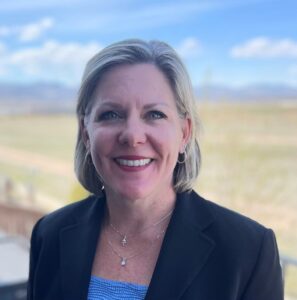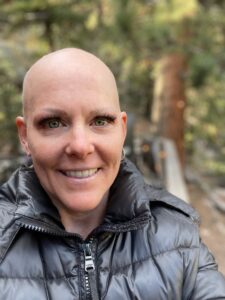
Cari Frank, MBA VP of Communication and Marketing
Going through treatment for cancer is like running your first marathon unprepared – terrifying, unpredictable, and with no option to turn back. You don’t really know what to expect or how your body is going to feel or react. There are ups and downs and some miles, especially the last, are more mentally challenging than others. People cheer and support you along the way, but after the finish line they leave assuming the worst is over. But like running an excruciating race, crossing the finish line after cancer treatment is just the beginning of the healing process for your body and mind.
It’s been a year and a half since I finished my last chemotherapy treatment for breast cancer. As I talked about in a previous blog, I’m extremely grateful for a number of things related to my diagnosis and personal situation, and to be cancer free. During treatment I didn’t stop to think how it was impacting me mentally, and I had no idea the physical impact it would have long-term. I just wanted it over with, so I kept pushing forward week after week until I finally made it to my last treatment. I thought if I could just make it past that final visit, I’d magically be back to my normal self. But that wasn’t my reality.
Life after treatment is not something anyone prepares you for or even talks about, but it’s difficult, and will impact me in some way forever.
 From a physical perspective, I was a hot mess, and even as I write this, I don’t feel as strong physically as I was before cancer. After several months, I did regain most of the cardiovascular strength I had lost. But my joints still ache and pop
From a physical perspective, I was a hot mess, and even as I write this, I don’t feel as strong physically as I was before cancer. After several months, I did regain most of the cardiovascular strength I had lost. But my joints still ache and pop
horribly, and I had severe chronic muscle soreness in one of my quads for several months – a common side effect of the immunotherapy I received.
Mentally I had even more trouble. During treatment I decided to embrace baldness, but as my hair started to come back in, I felt like I looked 10 years older than I did before. I also was still recovering from a double mastectomy and reconstructive surgery and didn’t look the way I expected I would. I didn’t feel confident, and felt guilty for being depressed thinking I should just suck it up and be grateful not to have cancer. It was clear that I needed to deal with the post-traumatic stress that comes with a cancer diagnosis and treatment regimen.
It was around this point in my journey that I stumbled on Sites and Insights, a non-profit organization that provides mindful art therapy to people impacted by cancer. I had the opportunity to go to one of their free weekend mountain retreats with other cancer survivors and caregivers, and it was there that I finally started addressing the devastating impact that my cancer diagnosis and treatment had on me. Through art, I was able to express the emotions I had been feeling that I couldn’t verbally express otherwise. I found peace in the fact that I wasn’t exactly the same as I was before and most likely never would be. It was amazing to be surrounded by others who were also on a similar journey, and I was so inspired by their strength and resilience.
As a society, we often think of traditional health care services and medications as the first line of defense in healing. If you have pain or feel depressed, surely there is some medication for that, right? But there is lasting power in services and programs outside of the health care system like the ones I experienced through Sites and Insights. I learned that it’s okay to not feel like my normal self and to not be disappointed in my progress. I know now that this is truly a journey and there will likely continue to be some ups and downs over time. But now I have the tools and support to make it past the difficult miles when I face them.
